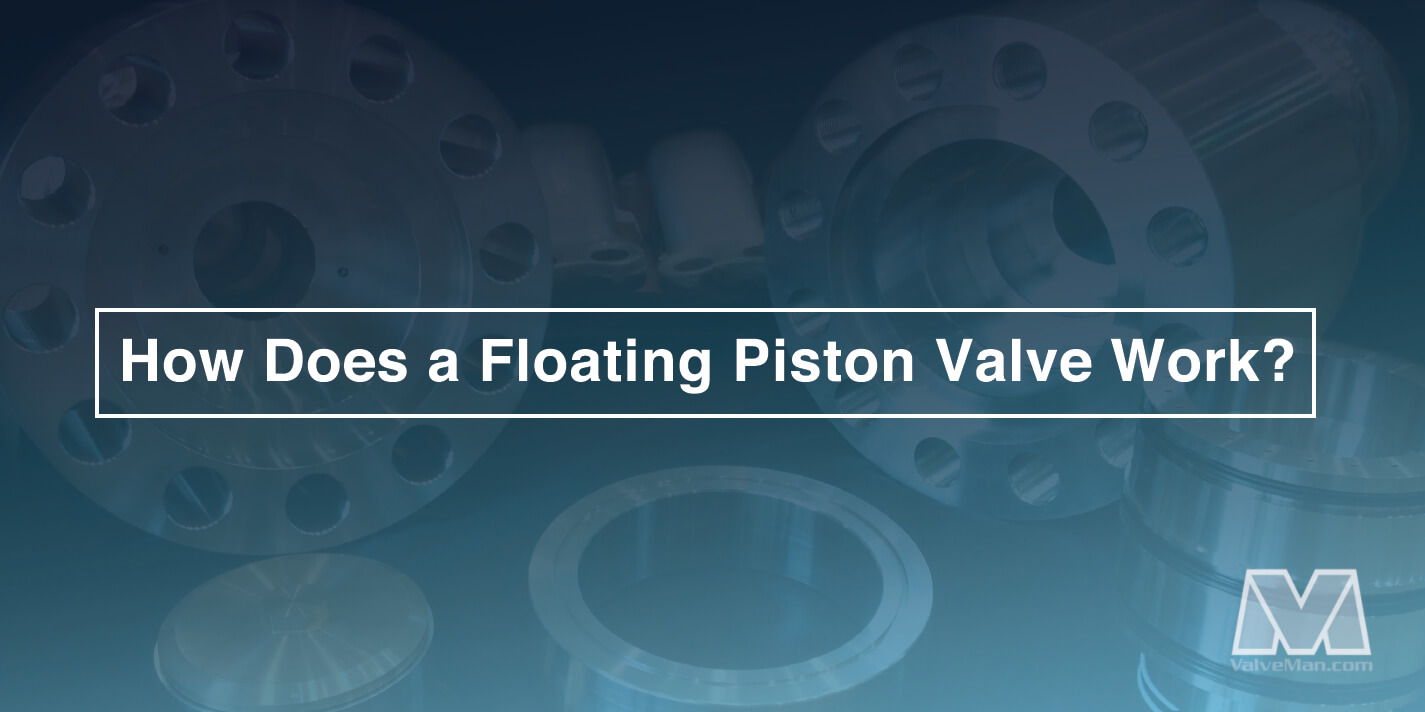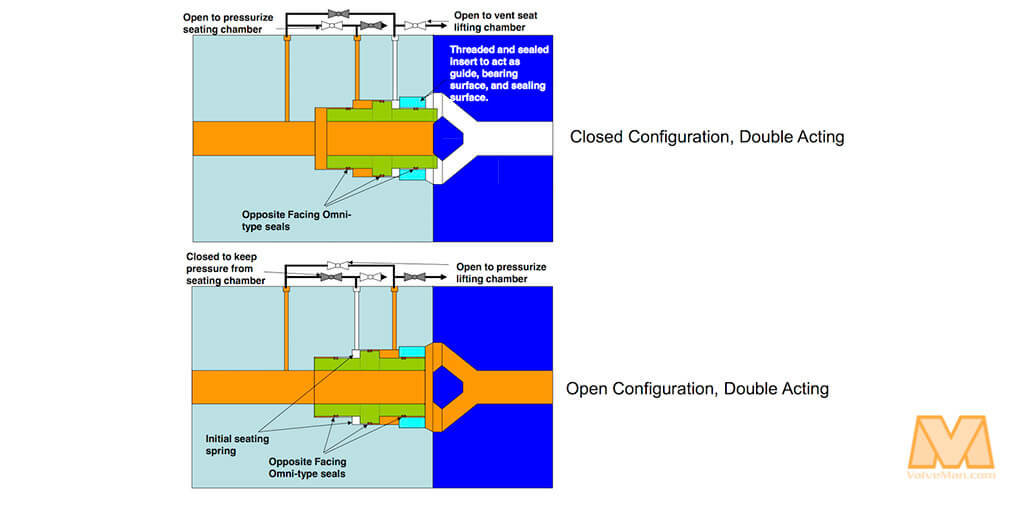How Does A Floating Piston Valve Work?
Posted by Russ Bailey on Sep 9th 2020

About Floating Piston Valves
Floating piston valves, as used in NASA, have several applications. Floating piston valves have a very unique construction. Composed without an actuator and designed with less parts, floating piston valves require less maintenance, reducing their size and cost. Newer models of the floating piston are of higher quality, addressing pre-existing issues from previous designs.
A floating piston valve consists of a solid piston pressed against a stationary, solid seat that is suspended in a medi in order for it to control the flow stream and seal the valve. Whether the valve is open or closed, floating pistons are specifically designed to remain balanced within a flow stream. The only force used on a piston is that which the operator chooses to input. Because of the requirement to use this valve manually, there is the eliminated factor of an actuator and in its place is one to two solenoid valves.
The floating piston is a rather simplistic valve, composed of only five parts, with its seals manufactured to be well-protected by design. The floating piston valve’s simple design makes it a durable option for high pressures, soft or hard metal seats, while increasing the valve’s reliability and seat life. By eliminating the actuator, the valve’s dependability and lifespan are greatly improved. Its structure is specifically manufactured to ensure that fluid pressures inside of the valve will remain balanced, giving the floating piston valve an increased lifespan.

Applications of Floating Piston Valves
Piston Valves have a wide variety of potential applications and are fairly versatile. Its simple design makes it reliable and easy to maintain. Some applications of piston valves include:
- Power and Petrochemical Plants
- Chemical Processing
- Refineries
- Pressurizing Storage Tanks
- Cryogenic Fluid Systems
- Pharmaceutical Manufacturing
- Applications Requiring Severe Duty, Extremely High Pressures or Temperatures
- Applications Requiring Fast Actuation
Latest Models
Over the years floating piston valves have been re-engineered to enhance the stability of the design to ensure its stability. New models are compatible with hard or soft metal seats with an adjustable closing force. Some newer floating piston valves are able to withstand pressures up to 15,000 psi.
Benefits of Choosing a Floating Piston Valve
- Simplicity of design reduces complexity of maintenance
- The elimination of a valve stem and an actuator reduces size and cost of the valve.
- It does not need many seals; therefore, the maintenance is greatly reduced while having an increased lifespan.
- The path of flow is almost always symmetrical, therefore, there is a reduced chance of induced thrust loads both during transition from open to closed.
- No fugitive emissions
- Can withstand high pressures
Where to Purchase
For over 50 years, ValveMan has been the reliable place to purchase valves for all of your needs. ValveMan.com offers an extensive range of high-quality valves for up to 30% off of their list price. ValveMan offers some of the most respected manufacturers within the valve industry, including Apollo Valve, Bonomi Valve, and more. We offer exceptional service and fast shipping to make shopping a breeze. Contact ValveMan.com today.
